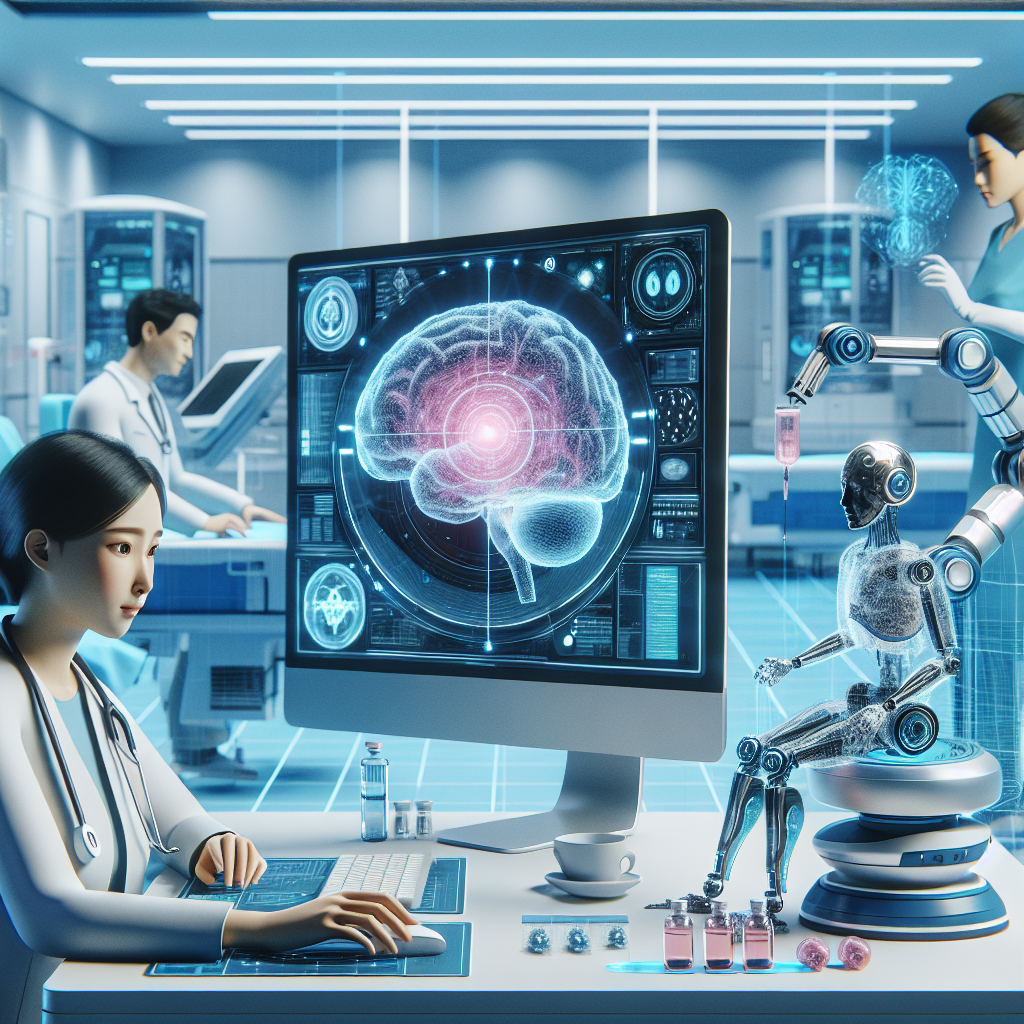Artificial General Intelligence (AGI) is a term that refers to the development of intelligent machines that can perform any intellectual task that a human can. In recent years, AGI has made significant strides in various fields, including healthcare. The use of AGI in healthcare has the potential to revolutionize the way we diagnose and treat diseases, leading to more accurate and personalized care for patients.
AGI in Healthcare: Revolutionizing Diagnosis and Treatment
AGI has the ability to analyze vast amounts of medical data quickly and accurately, leading to more precise diagnoses and treatment plans. By using machine learning algorithms, AGI can identify patterns and correlations in data that humans may overlook, leading to better outcomes for patients.
One of the key benefits of using AGI in healthcare is its ability to provide personalized treatment plans based on a patient’s unique genetic makeup, medical history, and lifestyle factors. This personalized approach can lead to more effective treatment outcomes and reduce the risk of adverse reactions to medications.
AGI can also help healthcare providers make faster and more accurate diagnoses by analyzing medical images, such as X-rays, MRIs, and CT scans. By using deep learning algorithms, AGI can detect subtle abnormalities in images that may be missed by human radiologists, leading to earlier detection of diseases and better treatment outcomes.
Another area where AGI is making a significant impact in healthcare is in drug discovery and development. By analyzing large datasets of molecular and genetic information, AGI can identify potential drug targets and predict how different drugs will interact with the body. This can lead to the development of more effective and targeted therapies for a wide range of diseases, including cancer, diabetes, and cardiovascular disease.
Overall, the use of AGI in healthcare has the potential to revolutionize the way we diagnose and treat diseases, leading to more personalized and effective care for patients. By leveraging the power of artificial intelligence, healthcare providers can improve patient outcomes, reduce costs, and save lives.
FAQs
Q: How is AGI different from other forms of artificial intelligence?
A: AGI is different from other forms of artificial intelligence, such as narrow AI or machine learning, in that it has the ability to perform any intellectual task that a human can. While narrow AI is designed to perform specific tasks, such as image recognition or natural language processing, AGI has the potential to learn and adapt to new tasks and environments, making it more versatile and powerful.
Q: How is AGI being used in healthcare?
A: AGI is being used in healthcare in a variety of ways, including diagnosing diseases, personalizing treatment plans, analyzing medical images, and drug discovery and development. By leveraging the power of artificial intelligence, healthcare providers can improve patient outcomes, reduce costs, and save lives.
Q: What are the potential benefits of using AGI in healthcare?
A: The potential benefits of using AGI in healthcare include more accurate diagnoses, personalized treatment plans, faster drug discovery, and improved patient outcomes. By analyzing vast amounts of medical data quickly and accurately, AGI can help healthcare providers make better decisions and improve the quality of care for patients.
Q: What are the challenges of using AGI in healthcare?
A: While the use of AGI in healthcare has the potential to revolutionize the way we diagnose and treat diseases, there are also challenges that need to be addressed, such as data privacy concerns, regulatory issues, and the need for more research and development. Healthcare providers will need to work closely with AI developers and regulators to ensure that AGI is used ethically and responsibly.
In conclusion, the use of AGI in healthcare has the potential to revolutionize the way we diagnose and treat diseases, leading to more personalized and effective care for patients. By leveraging the power of artificial intelligence, healthcare providers can improve patient outcomes, reduce costs, and save lives. As technology continues to advance, we can expect to see even greater benefits from the use of AGI in healthcare in the years to come.

